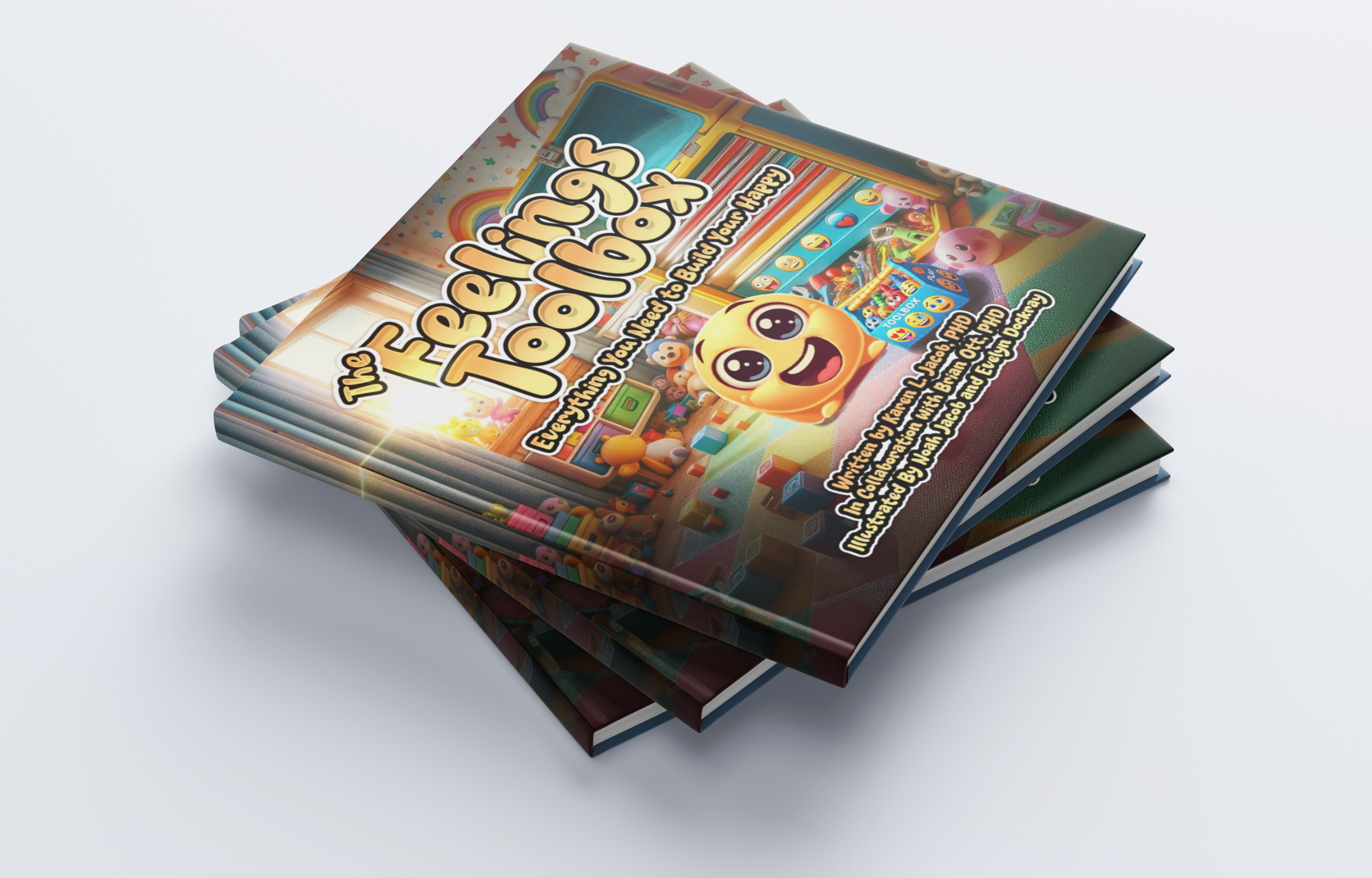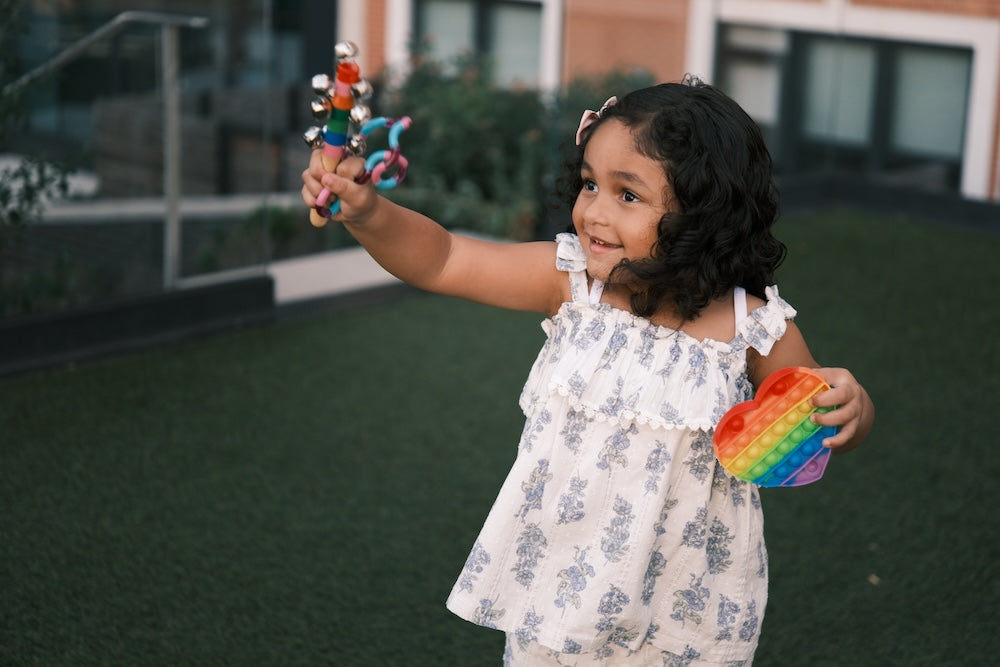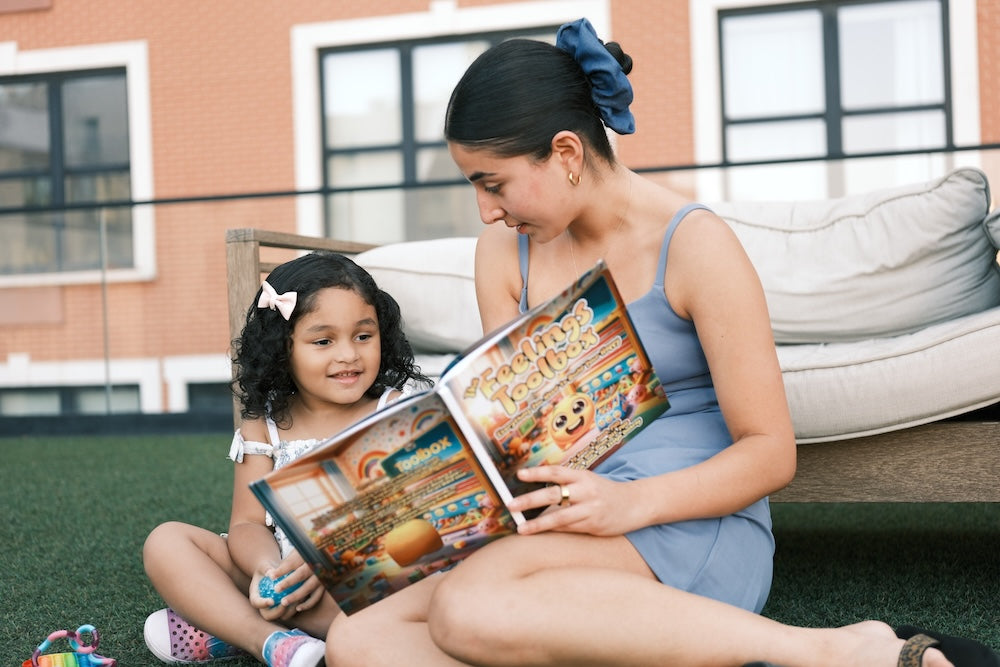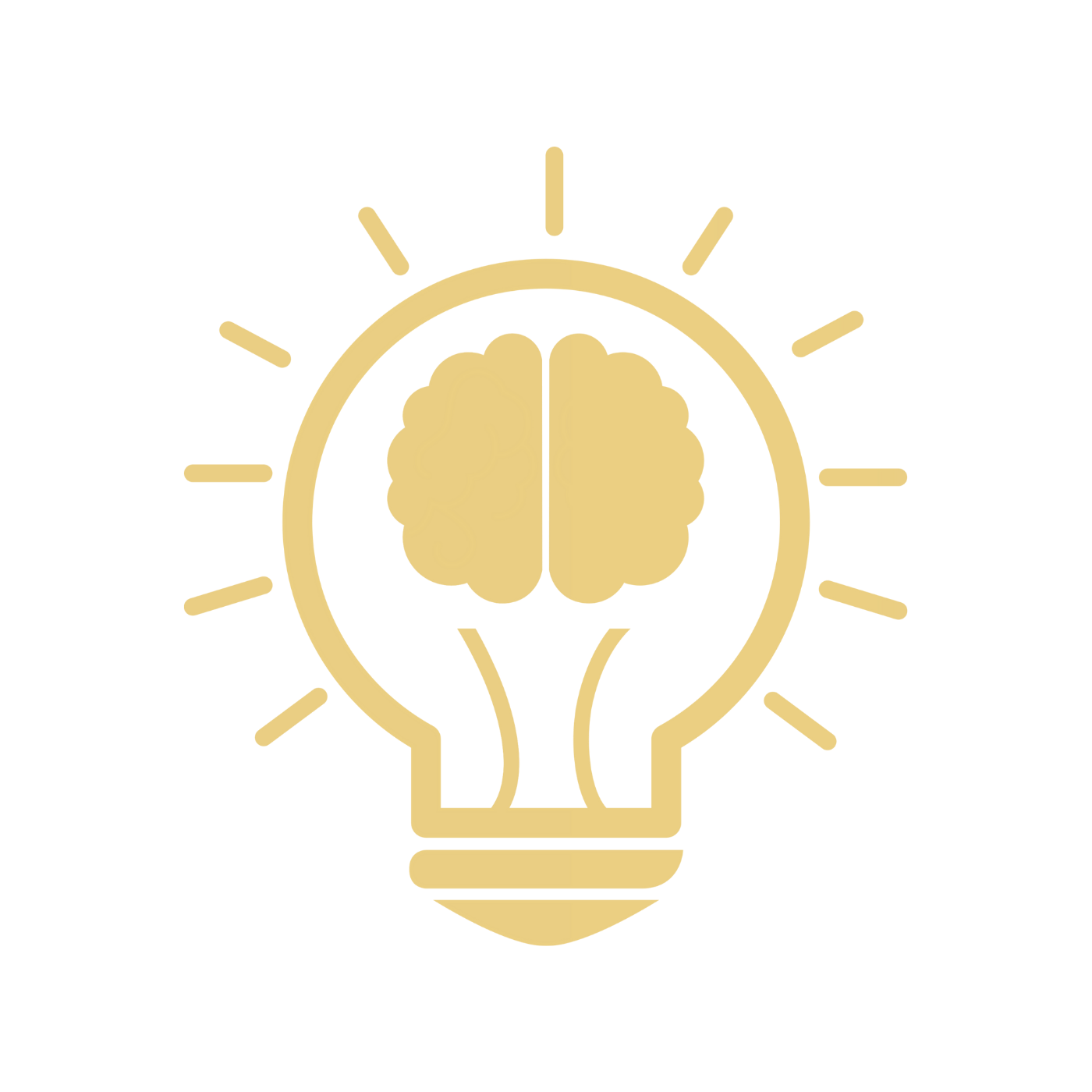


The Feelings Toolbox
The Feelings Toolbox is a research-backed book paired with interactive, play-based tools that help children build emotional awareness, develop self-regulation skills, and express big feelings with confidence.
📦 Now available for pre-order — simply enter your email below to reserve your spot. You’ll be the first to access the Toolbox when it launches (no payment or credit card required for joining the pre-order list).
- The Feelings Toolbox Book: A beautifully illustrated storybook that helps children build emotional literacy through playful characters and relatable scenarios
- Two (2) Eye Coolers: Soft gel packs for calming with the dive reflex
- Sand Timer: For breathing and mindful focus
- Tangle Toy: Tactile fidget for sensory grounding
- Pop-Its: Encourage attentional shifting and provide a simple, repetitive sensory experience to redirect focus
- Magic Writing Pad: Creative outlet for expression
- Stress Balls: For proprioceptive input and nervous system regulation
- Jingle Bells: Rhythmic tool for auditory focus
- Shaker: Musical instrument for present-moment awareness

Tested & Certified to ASTM Toy Safety Standards
Coming Soon: 12-Week SEL (Social & Emotional Learning) Curriculum
Developed by clinical psychologist Dr. Karen Jacob, this 12-week program teaches emotional literacy, regulation strategies, and self-awareness through playful, developmentally appropriate lessons grounded in proven therapeutic frameworks (DBT, CBT, ACT, and MBT).
The Science Behind the Toolbox
The Toolbox draws from leading research and therapies like DBT, ACT, and mentalization-based treatment, all of which emphasize emotional labeling (“name it to tame it”) and mindful awareness as keys to self-regulation. When kids learn to talk about their feelings, they’re better able to manage them.
All tools are certified to ASTM Toy Safety Standards and selected with intention and backed by evidence-based principles.
How the Tools Work
Eye Coolers: Cools the eye area to trigger the body’s natural “dive reflex,” lowering heart rate and calming the nervous system. This is especially helpful for children who feel emotionally flooded.
Pop-Its: Encourages attentional shifting by directing focus toward a simple, repetitive sensory task. The rhythmic popping supports self-regulation, reduces stress, and provides a playful, calming outlet.
Sand Timer: Supports focused, rhythmic breathing and present-moment awareness. Children can watch the sand fall while breathing deeply, helping to slow down and regulate.
Jingle Bells + Shaker: Engages auditory processing and rhythm, helping children shift attention and regulate through sound and movement. Promotes present-moment mindfulness and co-regulation.
Magic Writing Pad: Encourages creative emotional expression in a nonverbal way. Drawing fosters calm and helps children externalize and process big feelings.
Tangle Toy: Provides repetitive, soothing motion that offers tactile stimulation. Useful for grounding, focus, and managing anxiety.
Stress Balls: Offers deep pressure input through squeezing and releasing, helping regulate the nervous system and channel stress in a safe, physical way.
Empowerment & Skill Building
- All tools are introduced as tangible strategies that help children gain confidence in their ability to independently manage emotions.
- These tools promote self-awareness, self-regulation, and healthy coping routines that can generalize across settings.
Why Caregiver Involvement Is Key
When caregivers model emotional openness and use shared language around feelings, children are more likely to develop these skills in meaningful and lasting ways. The Feelings Toolbox is designed to bring families and teachers into the learning process together.
About the Author
Dr. Karen Jacob is a clinical psychologist with over two decades of experience at McLean Hospital and Harvard Medical School, where she has specialized in the treatment of complex personality disorders and emotional dysregulation. Through her work with individuals facing deep emotional challenges, many of whom missed the chance to build emotional awareness early in life, she saw the lasting impact of missed intervention windows.
Motivated by both her clinical expertise and her experience as a mother of three, Dr. Jacob created The Feelings Toolbox to offer families a developmentally appropriate, evidence-based resource for young children. Her background in DBT, MBT, ACT, and CBT has informed the tools and strategies in the Toolbox, translating proven psychological principles into playful, accessible activities that help kids build emotional language and regulation skills from the start.
Research & References
The Feelings Toolbox is grounded in decades of child development research. Studies consistently show that emotional literacy in early childhood improves self-regulation, empathy, peer relationships, and long-term mental wellness. Below are some of the key research sources that inform the strategies behind the Toolbox:
Bateman, A. W., & Fonagy, P. (2006). Mentalization-Based Treatment for Borderline Personality Disorder: A Practical Guide. Oxford University Press.
Beck, J. S. (2011). Cognitive Behavior Therapy: Basics and Beyond (2nd ed.). Guilford Press.
Denham, S. A., Blair, K. A., DeMulder, E., Levitas, J., Sawyer, K., Auerbach–Major, S., & Queenan, P. (2003). Preschool emotional competence: Pathway to social competence? Child Development, 74(1), 238–256.
Domitrovich, C. E., Cortes, R. C., & Greenberg, M. T. (2007). Improving young children’s social and emotional competence: A randomized trial of the Preschool PATHS curriculum. The Journal of Primary Prevention, 28, 67–91.
Hayes, S. C., Strosahl, K. D., & Wilson, K. G. (2012). Acceptance and Commitment Therapy: The Process and Practice of Mindful Change (2nd ed.). Guilford Press.
Izard, C. E., Trentacosta, C. J., King, K. A., & Mostow, A. J. (2008). An emotion-based prevention program for preschool children. Early Education and Development, 19(4), 652–667.
Linehan, M. M. (1993). Cognitive-Behavioral Treatment of Borderline Personality Disorder. Guilford Press.
Siegel, D. J. (2010). The Whole-Brain Child: 12 Revolutionary Strategies to Nurture Your Child’s Developing Mind. Delacorte Press.
Zins, J. E., Weissberg, R. P., Wang, M. C., & Walberg, H. J. (2004). Building Academic Success on Social and Emotional Learning: What Does the Research Say? Teachers College Press.
Choose options






